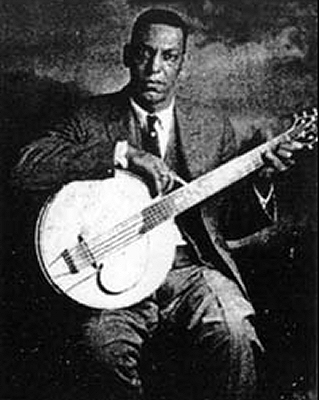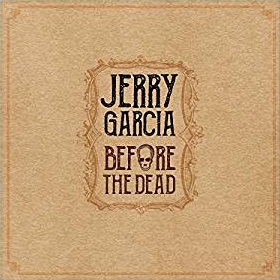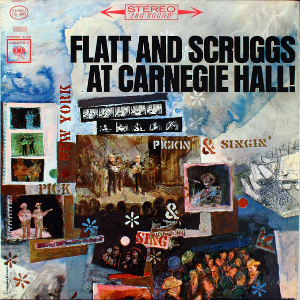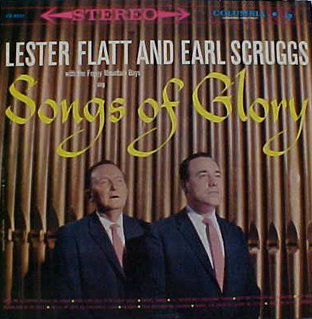Related Research Articles

William Smith Monroe was an American mandolinist, singer, and songwriter who created the bluegrass music genre. Because of this, he is often called the "Father of Bluegrass".

Bluegrass music is a genre of American roots music that developed in the 1940s in the Appalachian region of the United States. The genre derives its name from the band Bill Monroe and the Blue Grass Boys. Like mainstream country music, it largely developed out of old-time music. Unlike country, it is traditionally played exclusively on acoustic instruments from Africa and Europe. Bluegrass has roots in traditional North European music, such as Irish ballads and dance tunes, as well as African American genres like blues and jazz. It was further developed by musicians who played with Monroe, including 5-string banjo player Earl Scruggs and guitarist Lester Flatt. Bill Monroe once described bluegrass music as, "It's a part of Methodist, Holiness and Baptist traditions. It's blues and jazz, and it has a high lonesome sound."

Earl Eugene Scruggs was an American musician noted for popularizing a three-finger banjo picking style, now called "Scruggs style", which is a defining characteristic of bluegrass music. His three-finger style of playing was radically different from the traditional way the five-string banjo had previously been played. This new style of playing became popular and elevated the banjo from its previous role as a background rhythm instrument to featured solo status. He popularized the instrument across several genres of music.

William Henry "Papa Charlie" Jackson was an early American bluesman and songster who accompanied himself with a banjo guitar, a guitar, or a ukulele. His recording career began in 1924. Much of his life remains a mystery, but his draft card lists his birthplace as New Orleans, Louisiana, and his death certificate states that he died in Chicago, Illinois, on May 7, 1938.

"Silver Dagger", with variants such as "Katy Dear", "Molly Dear", "The Green Fields and Meadows", "Awake, Awake, Ye Drowsy Sleepers" and others, is an American folk ballad, whose origins lie possibly in Britain. These songs of different titles are closely related, and two strands in particular became popular in commercial country music and folk music recordings of the twentieth century: the "Silver Dagger" version popularised by Joan Baez, and the "Katy Dear" versions popularised by close harmony brother duets such as The Callahan Brothers, The Blue Sky Boys and The Louvin Brothers.
Hot Buttered Rum is an American five-piece progressive bluegrass act based in the San Francisco Bay Area.

Charles Cleveland Poole was an American old-time musician and leader of the North Carolina Ramblers, a string band that recorded many popular hillbilly songs between 1925 and 1930.
"Cocaine Blues" is a Western swing song written by Troy Junius Arnall, a reworking of the traditional song "Little Sadie." Roy Hogsed recorded a well known version of the song in 1947.

"Sweet Home Chicago" is a blues standard first recorded by Robert Johnson in 1936. Although he is often credited as the songwriter, several songs have been identified as precedents. The song has become a popular anthem for the city of Chicago despite ambiguity in Johnson's original lyrics. Numerous artists have interpreted the song in a variety of styles.
William Myles Nobles, known as Billy Myles, was an American R&B songwriter and singer active in the 1950s and 1960s. He is best known for writing "Tonight, Tonight" recorded by The Mello-Kings, "(You Were Made for) All My Love" recorded by Jackie Wilson (1960), and "Have You Ever Loved A Woman" recorded by Freddie King (1960), then Eric Clapton (1970).

Aereo-Plain is a 1971 studio album by American bluegrass singer-songwriter and instrumentalist John Hartford. It reached number 193 on The Billboard 200 chart.
"Honey, Just Allow Me One More Chance" is a song recorded by blues musician Henry "Ragtime Texas" Thomas in 1927, under the title "Honey, Won't You Allow Me One More Chance". It was covered by Bob Dylan on his album The Freewheelin' Bob Dylan, which came out on May 27, 1963.
"You Gotta Move" is a traditional African-American spiritual song. Since the 1940s, the song has been recorded by a variety of gospel musicians, usually as "You Got to Move" or "You've Got to Move". It was later popularized with blues and blues rock secular adaptations by Mississippi Fred McDowell and the Rolling Stones.
"Take This Hammer" is a prison, logging, and railroad work song, which has the same Roud number as another song, "Nine Pound Hammer", with which it shares verses. "Swannanoa Tunnel" and "Asheville Junction" are similar. Together, this group of songs are referred to as "hammer songs" or "roll songs". Numerous bluegrass bands and singers like Scott McGill and Mississippi John Hurt also recorded commercial versions of this song, nearly all of them containing verses about the legendary railroad worker, John Henry; and even when they do not, writes folklorist Kip Lornell, "one feels his strong and valorous presence in the song".
Benny Sims was a bluegrass and country musician who played with Flatt and Scruggs, Roy Acuff and Bill Monroe.
Chris Jones is an American bluegrass singer, guitarist, songwriter, and broadcaster, singing in a baritone voice. He fronts the Night Drivers.
Ron Stewart is an American multi-instrumentalist in the bluegrass tradition. He plays fiddle, guitar, banjo, and mandolin, and has won the International Bluegrass Music Association (IBMA) award for Fiddle Player of the Year in 2000 and Banjo Player of the Year in 2011.

Before the Dead is an album by Jerry Garcia. It is a compilation of early recordings of Garcia playing folk and bluegrass music with various other musicians. The recordings were made from 1961 to 1964, before Garcia co-founded the rock band the Grateful Dead. Produced as a four-CD box set, and also as a five-LP limited edition box set, it was released on May 11, 2018.

Flatt and Scruggs at Carnegie Hall! is a live album by bluegrass artists Flatt and Scruggs. It was recorded on December 8, 1962, at the first bluegrass concert ever performed at Carnegie Hall. It was released in 1963 by Columbia Records.

Songs of Glory is a studio album by bluegrass artists Flatt and Scruggs with the Foggy Mountain Boys. It was released in 1960 by Columbia Records, catalog numbers CL 1424 (mono) and CS 8221 (stereo).
References
- ↑ Richard Matteson Jr. (2006). Bluegrass Picker's Tune Book. Mel Bay Publications. p. 200. ISBN 978-0-7866-7160-1.
- 1 2 3 4 5 6 Matteson, Richard. "History of 'Salty Dog Blues'". Matteson Art. Retrieved August 5, 2011.
- 1 2 Obrecht, Jas (June 23, 2011). "Papa Charlie Jackson: The First Popular Male Blues Singer". Jas Obrecht Music Archive. Archived from the original on July 7, 2011. Retrieved August 6, 2011.
- ↑ "Salty Dog Blues". musicservices.org. Retrieved November 17, 2019.
- ↑ "ACE Repertory: Salty Dog Blues". ASCAP . Retrieved November 17, 2019.
- ↑ "BMI Repertoire: Salty Dog Blues". BMI . Archived from the original on September 15, 2020. Retrieved November 17, 2019.
- ↑ "Jelly Roll Morton - Library of Congress Narrative 2" . Retrieved August 6, 2011.
- ↑ Hoffman, David (March 11, 2017). "1972 –Earl Scruggs: OldTime Music At Its Greatest". YouTube . Retrieved August 19, 2018.
- ↑ Stasio, Frank; Barron, Katy (December 26, 2008). "Bluegrass Legend Curly Seckler". wunc.org. Retrieved August 5, 2011.
- ↑ Odum, Howard W. (1911). "Folk-Song and Folk-Poetry as Found in the Secular Songs of the Southern Negroes". The Journal of American Folklore . 24 (93–94).